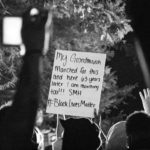By CATHY BUSSEWITZ
Associated Press
HONOLULU (AP) _ The federal government announced Wednesday it will take a first step toward recognizing and working with a Native Hawaiian government at a time when a growing number of Hawaiians are questioning the legality of the U.S. annexation of Hawaii.
The U.S. Department of the Interior will host a series of public meetings during the next 60 days with Native Hawaiians, other members of the public and Native American tribes in the continental U.S. to discuss the complex issue, Rhea Suh, assistant secretary for policy, management and budget for the department, said during a conference call with reporters.
“This does not mean we are proposing an actual formal policy,” Suh said. “We are simply announcing that we’ll begin to have conversations with all relevant parties to help determine whether we should move forward with this process and if so, how we should do it.”
Native Hawaiians have been taking steps to form their own government, but the possibility of federal recognition and a growing sense that many Hawaiians want to pursue independence led some observers to call for a delay in the nation-building process. Kamanaopono Crabbe, the CEO of the Office of Hawaiian Affairs, suggested a delay of at least six months after questions were raised about whether the Hawaiian kingdom still exists in the eyes of the United States.
“While a rulemaking process proposed by the DOI is designed to open the door to a government-to-government relationship between the United States and our people, we see this as only one option for consideration,” Crabbe said in a statement. “The decision of whether to walk through the federal door or another will be made by delegates to a Native Hawaiian `aha (convention) and ultimately by our people. We are committed to keeping all doors open so our people can have a full breadth of options from which to choose what is best for themselves and everyone in Hawaii.”
Two potential steps _ creating a government and seeking federal recognition _ can happen at the same time, said Jessica Kershaw, a spokeswoman for the Interior Department.
Critics have said the path the federal government is pursuing is inappropriate because it appears the end goal is to incorrectly recognize Native Hawaiians as a Native American tribe. However, the federal government’s process leaves it up to Hawaiians to define themselves, and there would be discussions about whether it makes sense for Hawaiians to pursue a similar tribal designation, Suh said.
“There is nothing in this process that speaks to how the native community should be defined,” Suh said. “This process only pertains to the relationship between the U.S. government and the native Hawaiian community.”
The community meetings would start next week in Honolulu and would continue on neighboring islands.
Williamson Chang, a law professor at the University of Hawaii, believes the legal questions raised recently about whether the Kingdom of Hawaii still exists pushed the federal government into action.
“I consider Hawaii to be occupied or under a state of emergency,” Chang said. “The one thing I’m sure of is the United States does not have jurisdiction.”
A federal recognition that is similar to a tribal designation would be a step backward in the eyes of many Hawaiians, because the U.S. previously recognized the Hawaiian government as equal, not beneath, the U.S., Chang said.
“One solution could be complete independence, but I don’t think the United States would stand for that,” Chang said. “The Big Island could be spun off and become an independent nation, where Hawaiians could say they have a homeland.”
Hawaii’s four-member congressional delegation issued a joint statement applauding President Barack Obama’s administration for its commitment to open dialogue and its decision to start the process with listening sessions in Hawaii.
“This notice represents an historic opportunity to address years of injustice and marks a positive step forward in the push for Native Hawaiian self-determination,” they said.









